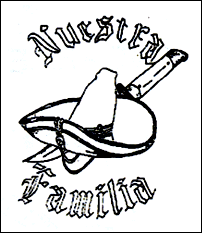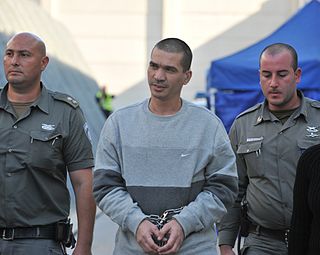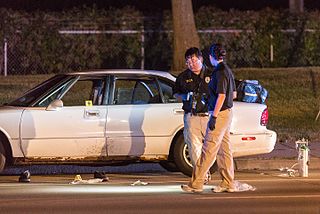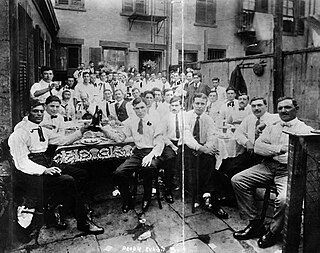
Organized crime or organised crime is a category of transnational, national, or local group of centralized enterprises run to engage in illegal activity, most commonly for profit. While organized crime is generally thought of as a form of illegal business, some criminal organizations, such as terrorist groups, rebel forces, and separatists, are politically motivated. Many criminal organizations rely on fear or terror to achieve their goals or aims as well as to maintain control within the organization and may adopt tactics commonly used by authoritarian regimes to maintain power. Some forms of organized crime simply exist to cater towards demand of illegal goods in a state or to facilitate trade of goods and services that may have been banned by a state. Sometimes, criminal organizations force people to do business with them, such as when a gang extorts protection money from shopkeepers. Street gangs may often be deemed organized crime groups or, under stricter definitions of organized crime, may become disciplined enough to be considered organized. A criminal organization can also be referred to as an outfit, a gang, crime family, mafia, mob, (crime) ring, or syndicate; the network, subculture, and community of criminals involved in organized crime may be referred to as the underworld or gangland. Sociologists sometimes specifically distinguish a "mafia" as a type of organized crime group that specializes in the supply of extra-legal protection and quasi-law enforcement. Academic studies of the original "Mafia", the Italian Mafia generated an economic study of organized crime groups and exerted great influence on studies of the Russian mafia, the Chinese triads, the Hong Kong triads, and the Japanese yakuza.
A gang is a group or society of associates, friends, or members of a family with a defined leadership and internal organization that identifies with or claims control over territory in a community and engages, either individually or collectively, in illegal, and possibly violent, behavior, with such behavior often constituting a form of organized crime.

Nuestra Familia is a criminal organization of Mexican American (Chicano) prison gangs with origins in Northern California. While members of the Norteños gang are considered to be foot soldiers of Nuestra Familia, being a member of Nuestra Familia itself does not signify association as a Norteño. Some law enforcement agents speculate that the Nuestra Familia gang, which operates in and out of prisons, influences much of the criminal activity of thousands of Norteño gang members in California. The gang's main sources of income are distributing cocaine, heroin, marijuana, and methamphetamine within prison systems as well as in the community and extorting drug distributors on the streets.
The Black Mafia, also known as the Philadelphia Black Mafia (PBM), Black Muslim Mafia and Muslim Mob, was a Philadelphia-based African-American organized crime syndicate. The organization began in the 1960s as a relatively small criminal collective in South Philadelphia, known for holding up neighborhood crap games and dealing in the illegal drug business, but at its height of operation in the early 1970s until about the early 1980s, it managed to consolidate power and control a large portion of criminal activity in various African-American neighborhoods throughout Philadelphia and the Delaware Valley, including South Jersey, Chester, and Wilmington. In addition to drug trafficking, burglary, and armed robbery, the Black Mafia was also engaged in traditional organized crime activities such as political corruption, extortion, racketeering, prostitution, loansharking, number running, and other illegal gambling rackets.

Transnational organized crime (TOC) is organized crime coordinated across national borders, involving groups or markets of individuals working in more than one country to plan and execute illegal business ventures. In order to achieve their goals, these criminal groups use systematic violence and corruption. Common transnational organized crimes include conveying drugs, conveying arms, trafficking for sex, toxic waste disposal, materials theft and poaching.

Jewish-American organized crime initially emerged within the American Jewish community during the late 19th and early 20th centuries. In media and popular culture, it has variously been referred to as the Jewish Mob, the Jewish Mafia, the Kosher Mob, the Kosher Mafia, the Yiddish Connection, and Kosher Nostra or Undzer Shtik. The last two of these terms are direct references to the Italian cosa nostra; the former is a play on the word for kosher, referring to Jewish dietary laws, while the latter is a calque of the Italian phrase 'cosa nostra' into Yiddish, which was at the time the predominant language of the Jewish diaspora in the United States.
Albanian mafia or Albanian organized crime are the general terms used for criminal organizations based in Albania or composed of ethnic Albanians. Albanian organized crime is active in Europe, North America, South America, and various other parts of the world including the Middle East and Asia. The Albanian Mafia participates in a diverse range of criminal enterprises including trafficking in drugs, arms, and humans. Thanks to their close ties with the 'Ndrangheta of Calabria, they control a large part of the billion dollar wholesale cocaine market in Europe and appear to be the primary distributors of cocaine in various European drug hubs including London. Albanian organized crime is characterized by diversified criminal enterprises which, in their complexity, demonstrate a very high criminal capacity. In Albania, there are over 15 mafia families that control organized crime. According to some sources, Albania is the first European narco state.
The Solntsevskaya Organized Crime Group, also known as the Solntsevskaya Bratva, is a Russian crime syndicate group.
Gangs in Canada are mostly present in the major urban areas of Canada, although their activities are not confined to large cities.
The 14K (十四K) is a triad group based in Hong Kong but active internationally. It is the second largest triad group in the world with around 20,000 members split into thirty subgroups. They are the main rival of the Sun Yee On, which is the largest triad.

The Abergil Organization is an Israeli organized crime syndicate that has been active since the late 20th and early 21st centuries. The organization was founded by brothers Yaakov and Avi Abergil in the city of Ramat Gan, Israel, in the 1990s. The Abergil Organization is involved in a wide range of criminal activities, including drug trafficking, money laundering, and extortion.
The Israeli mafia are the organized crime groups operating in Israel or consisting of Israeli members. There are 16 crime families operating in Israel, five major groups active on the national level and 11 smaller organizations. There are six Jewish crime families active and three Arab crime families. Many heads and members of the crime groups have either been killed or are in prison.
The Black Dragons was a Chinese-American criminal organization and street gang that was formed in 1980 by Chinese immigrants in Lincoln Heights, Los Angeles, California. It was started by a group of young men who banded together to protect themselves from other Asian and Latino gangs. The Black Dragons operated in Los Angeles and the San Gabriel Valley for over two decades. At the gang's peak it had over 100 core members. They may sometimes be identified by the color black. During their downfall in 2002, the convicted core members have made peace and united with other Asian rival gangs in prison. Over the years, The Black Dragons have made allies with numerous leaders and high ranking members of previous rival organizations.

Crime in Minnesota encompasses a wide range of unlawful activities that occur within the state, regulated by both state and federal laws. While crime rates in Minnesota are generally below the national average, certain areas and types of crime have garnered public attention.
The Organized Crime Control Bureau (OCCB) was one of the ten bureaus that formed the New York Police Department. The Bureau was charged with the investigation and prevention of organized crime within New York City. The OCCB was disbanded in March 2016 with all investigative entities moved to the Chief of Detectives' office. The reason for this was the NYPD launching a major reshuffle of its investigative forces, consolidating several of them in an effort to tackle the city's biggest crime problem — violence by gangs and youth crews.

The Brooklyn Camorra or New York Camorra was a loose grouping of early-20th-century organized crime gangs that formed among Italian immigrants originating in Naples and the surrounding Campania region living in Greater New York, particularly in Brooklyn. In the early 20th century, the criminal underworld of New York City consisted largely of Italian Harlem-based Sicilians and groups of Neapolitans from Brooklyn, sometimes referred to as the Brooklyn Camorra, as Neapolitan organized crime is referred to as the Camorra.
Although organized crime has always existed in Sweden, it has risen significantly in the 2000s. The number of organized criminal groups operating in the country continues to rise. In 2018, Sweden had the highest gun deaths in total across Europe, and deaths involving guns tripled in Sweden between 2012 and 2020.
The Ukrainian mafia is a type of criminal organization with origins in Ukraine. Such organizations are regarded as one of the most influential types of organized crime coming out of the former USSR, including also the Russian mafia, the Georgian mafia, the Chechen mafia, the Armenian mafia and the Azerbaijani mafia. Ukrainian criminal organizations are involved in a significant number of illegal activities. Although Ukrainian criminal organizations are for the most part independently operating enterprises, they are sometimes connected with Russian mafia organizations, such as the case with Semyon Mogilevich.
The Hutch Organized Crime Gang (HOCG), also known as the Hutch Gang, is a criminal organization with a long history of illegal activities, primarily based in Ireland. Over the years, they have been involved in a range of criminal enterprises, including murders, drug trafficking, armed robberies, and property deals. The gang has operated not only in Ireland but also in Spain and the United Kingdom, amassing assets estimated to be as high as €20 million.
The Uda Organization is a prominent crime syndicate operating primarily in Israel, with its headquarters situated in Jaljulia. Led by Koteir (Koko) Uda, the organization has gained notoriety for its swift ascent in the realm of Israeli organized crime.





